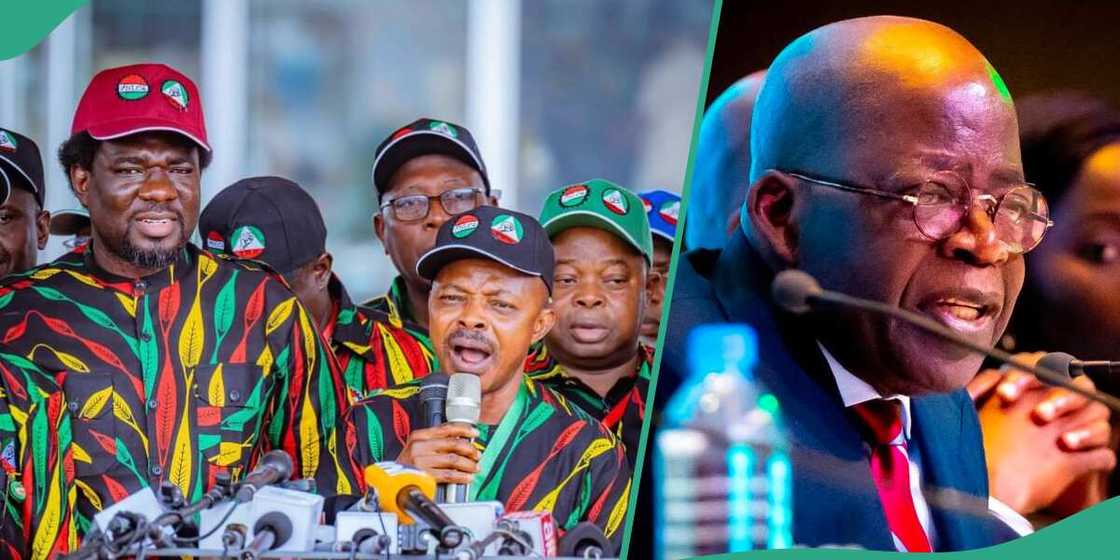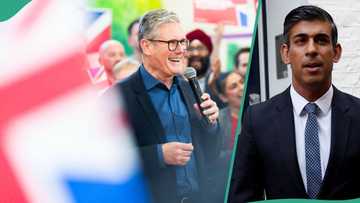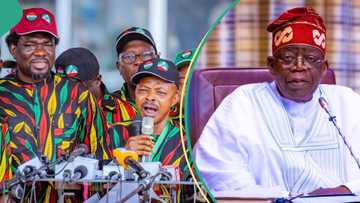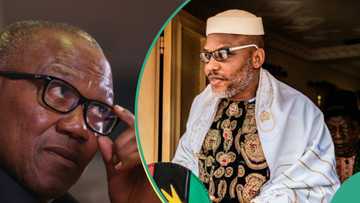Minimum Wage: 3 Reasons Labour May Not Get What They're Demanding
- The new minimum wage controversies may not be coming to an end soon because of the three deciding factors
- These factors are representations of stakeholders (labour, government and organised private sector) in the negotiation
- The perceived political affiliation of organised labour rather than being a pressure group topped the three major factors
The question of when the President Bola Tinubu-led federal government will commence paying a new minimum wage to Nigerian workers has long awaited an answer.
While several meetings have been held between the government's tripartite committee to develop a minimum wage proposal to be submitted to the national assembly for approval, a three-edged sword appears to be stalking the progress.

Source: Twitter
This three-edge factor comprises the political affiliations, financial wallets, and workforce of stakeholders: the labour, government (federal, state, and local), and the organised private sector (OPS).
While the federal government is standing in for the state and local governments in the negotiations, it has pegged the minimum wage at ₦62,000, but the state governors have come out to say the FG's proposal is not sustainable.
PAY ATTENTION: Share your outstanding story with our editors! Please reach us through info@corp.legit.ng!
Minimum wage: Governors want states to negotiate
Some governors, particularly from the South, are advocating for devolution of power, which would allow each state to negotiate what it can pay. Many analysts subscribed to this position.
The governors' argument aligned with public opinions that since states earn and generate different allocations and revenue, it is only proper for them to negotiate based on what is in each state's purse.
This, by extension, will lead to resource control advocacy by the states because once they decide the salaries of workers, they will have to be in charge of their states' resources.
Okanlawon Gaffar, a legal practitioner, in an interview with Legit.ng, advocated for states to negotiate their minimum wage based on their capacity. He said:
"I don’t think that the federal government should set the minimum wage to affect all states. This is itself the problem of our centralised government.
"Each state should be able to determine its own minimum wage based on its capacity. If Lagos can pay N150,000 as minimum wage and a state like Katsina can pay N30,000, so be it. States still make their own money despite receiving allocations from Abuja."
Minimum wage: private sector considerations
While this has both a political and economic tone, the OPS is looking at the capability of small and medium enterprises to sustain the proposed minimum wage.
This is because the OPS is for itself in the face of the dwindling economy and inflation hitting the country. All these made the ₦240,000 labour demands unrealistic.
The NLC acts as a political party
Organised labour, on the other hand, has presented itself as a political party, and its agitation is now being considered a political interest, unlike the days of Adams Oshiomhole, when many Nigerians appeared to be members of the Nigeria Labour Congress (NLC) and command respect.
While the NLC can claim that the Labour Party belonged to the workers, it should be noted that all Nigerian workers are not members of the Labour Party. Thus, there is a need for organised labour to prevent itself as more of a pressure group than a political party.
The political stance of the NLC may be a factor influencing the delay in implementing the new minimum wage. The government may be considering organised labour as a political party rather than the pressure group it should be.
At the last National Economic Council meeting, which President Bola Tinubu surprisingly attended, there was silence on the new minimum wage, which sent the wrong message from the government.
Minimum wage: States paying more than N30k
Legit.ng earlier highlighted some state governors that have started paying workers more than N30,000 as minimum wage.
Demand for an increase in the minimum wage has continued to intensify across the country amid harsh economic realities.
PAY ATTENTION: Donate to Legit Charity on Patreon. Your support matters!
Source: Legit.ng






